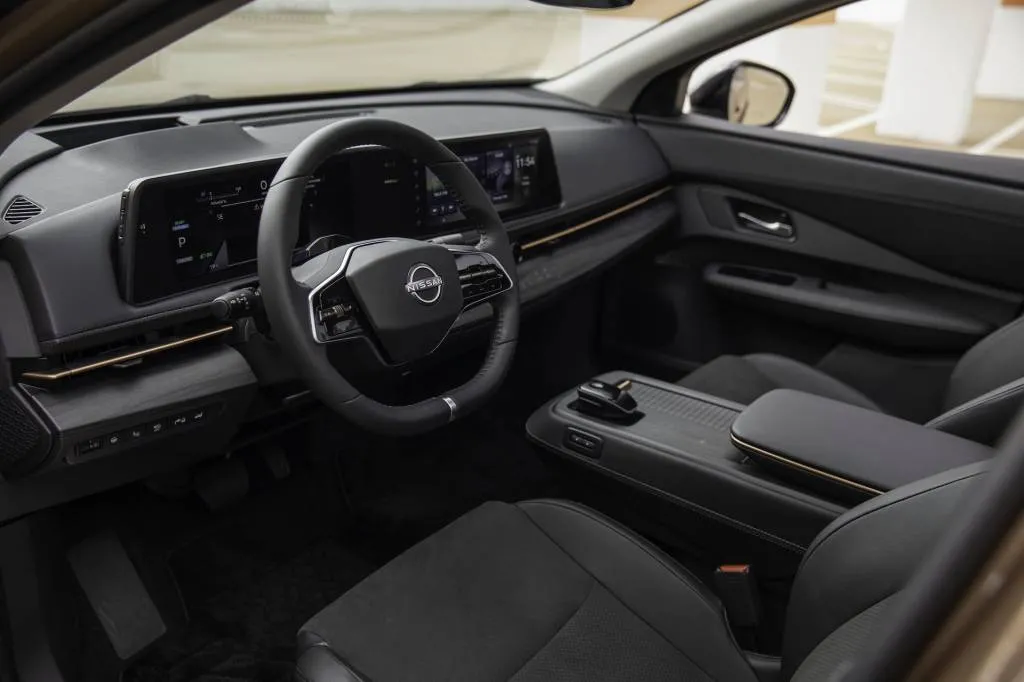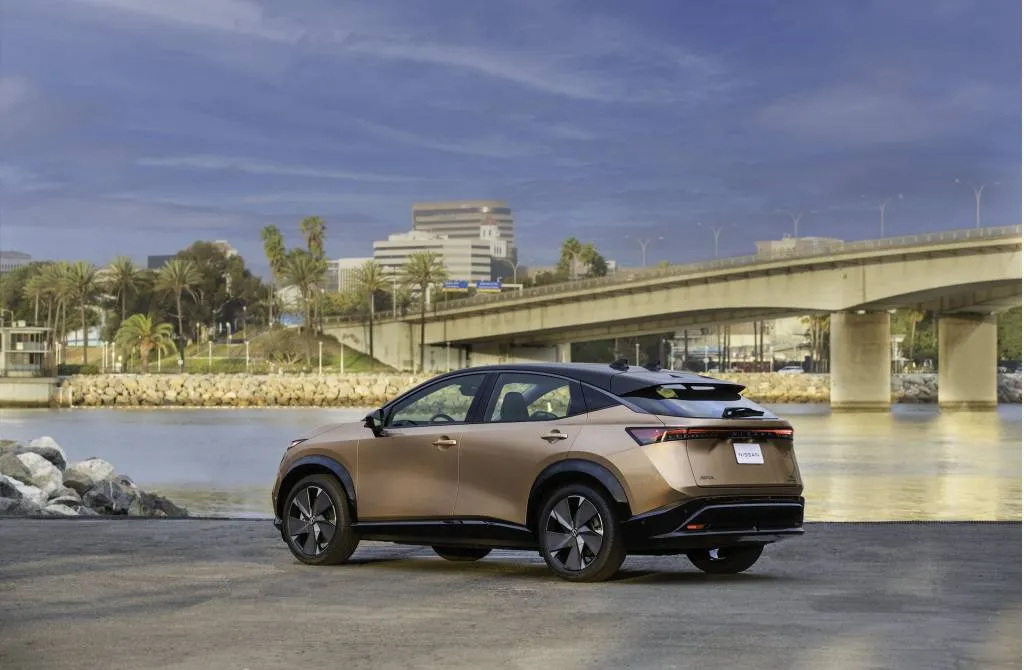The 2024 Nissan Ariya electric SUV gets a price cut for its second model year and, in the coming months, Tesla charging adapters for owners.
The base Ariya Engage front-wheel drive model now starts at $40,980 with destination, which is $3,600 less than the 2023 model, Nissan announced Monday in a press release. The same discount applies to Engage models with Nissan’s dual-motor all-wheel drive system, dubbed e-4orce.
Engage models have a 63-kwh battery pack, while all other Ariya grades have an 87-kwh pack. And with the 87-kwh Venture+ front-wheel drive model now priced at $42,580—$6,000 lower than before—buyers only have to pay $1,600 extra to get the bigger pack. This is also the configuration in which the Ariya achieves its maximum 304 miles of range—unchanged from the 2023 model year.

2024 Nissan Ariya
Evolve+ and Empower+ models, priced at $45,580 and $49,080, respectively, round out the front-wheel drive offerings. The all-wheel drive lineup also includes an Engage+ e-4orce model with the bigger pack ($46,580), the Evolve+ e-4orce ($49,580), and the range-topping Platinum+ e-4orce, priced from $55,580 with destination.
The Ariya is built in Japan and thus doesn’t qualify for the $7,500 federal EV tax credit. But it’s in good company, as stricter rules mean the list of 2024 EVs that qualify is very short.
Nissan also confirmed that a Tesla North American Charging Standard (NACS) adapter will be available for the Ariya “later this year,” allowing owners to charge at compatible Tesla Supercharger stations. Nissan plans to begin building cars with NACS charge ports for the U.S. and Canadian markets in 2025.

2024 Nissan Ariya
The Nissan Ariya was a Green Car Reports Best Car To Buy 2024 finalist, for its super-hushed interior, comfortable ride comfort, nimble handling, and an interface that gets it all right without future software updates. Its e-4orce all-wheel-drive system aids handling and is a standout in this class.
The Ariya is just Nissan’s second U.S.-market EV, after the Leaf. This hatchback has carried on without a redesign since the 2018 model year, but Nissan has confirmed that a next-generation Leaf is on the way. That’s in addition to several U.S.-built EVs due in 2025.

